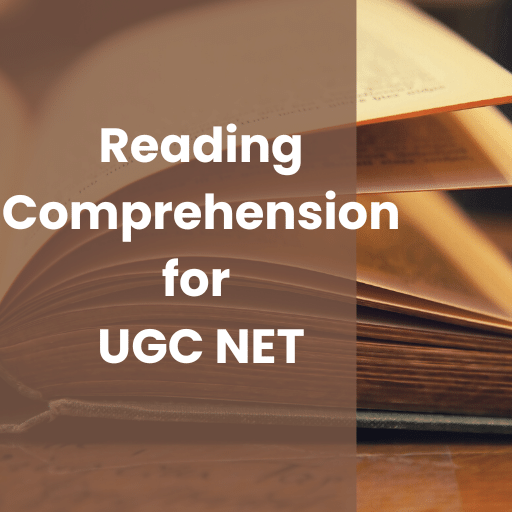Compound- Complex sentences | Basic Grammar for IELTS PDF Download
| Table of contents |

|
| Types of Sentence Structures |

|
| Explanation of Compound-Complex Sentences |

|
| Structure of Compound-Complex Sentences |

|
| How to Write a Compound-Complex Sentence |

|
What are Compound-Complex Sentences?
A compound-complex sentence is a sentence containing one or more dependent clauses and two or more independent clauses joined by a conjunction or semicolon. An independent clause comprises a subject and verb and is a complete thought. A dependent clause is an incomplete thought that would not be a full sentence on its own (it’s also referred to as a subordinate clause).
Types of Sentence Structures

Simple Sentences
- A simple sentence consists of just one independent clause. It includes a subject, a verb, and conveys a complete thought.
- Examples of simple sentences are:
- The movie was a bore.
- She felt fine.
- The hunter snuck up on the deer.
- She couldn’t believe the news.
Compound Sentences
- A compound sentence consists of two or more independent clauses joined together, either by a conjunction or a semicolon. In essence, a compound sentence is a combination of two simple sentences.
- For instance: “ Susan went to the grocer’s and Dinesh made a stop at the liquor store..
- This compound sentence could be divided into two simple sentences: “ Susan went to the grocer’s. Dinesh made a stop at the liquor store.
Complex Sentences
- A complex sentence is built upon a simple sentence, but instead of adding another simple sentence with a conjunction, it incorporates a dependent clause.
- A dependent clause uses a subordinating conjunction (such as after, because, or when) and contains a subject and a verb, but it does not express a complete idea.
- For example, in the complex sentence, “ Because Su-Ho was out with an ACL tear, her soccer team was soundly defeated in the championship..
- “ Her soccer team was soundly defeated in the championship. is a complete simple sentence. However, “ because Su-Ho was out with an ACL tear. has a subject and a verb, it does not complete the thought and cannot stand alone as a sentence.
Compound-Complex Sentences
- A compound-complex sentence is a combination of compound and complex sentences.
 |
Download the notes
Compound- Complex sentences
|
Download as PDF |
Examples of Compound-complex Sentences
- Harry plays football while it's nice outside.
- Anthony packs his lunch before he goes to school.
- If Shelby wants to, she will go to the beach.
- When it got cold, Ricky put on a sweatshirt.
- When the dog barks, even the most experienced thief will run away.
- John bit his lip because he was nervous.
- After watching the horror movie, Jasmine had nightmares.
Explanation of Compound-Complex Sentences
A compound-complex sentence contains at least two independent clauses and one or more dependent clauses.These sentences are a combination of compound sentences (having two independent clauses) and complex sentences (having one independent clause and at least one dependent clause).
- Example: Harry plays football while it's nice outside. This sentence has two independent clauses: "Harry plays football" and "it's nice outside."
- Example: After watching the horror movie, Jasmine had nightmares. This sentence has one independent clause "Jasmine had nightmares" and one dependent clause "After watching the horror movie."
- Compound-complex sentences allow for the expression of more complex ideas and relationships between different parts of a sentence.
- They often involve conjunctions like "while," "if," "when," and "after" to connect the clauses.
- Using compound-complex sentences can make writing more engaging and sophisticated.
Structure of Compound-Complex Sentences
Compound-complex sentences consist of multiple components that include a main clause, connective, and subordinate clause.
Understanding the structure of a compound-complex sentence is essential for effective composition.
It can be challenging initially, but with a solid grasp of compound and complex sentence forms, it becomes clearer.

(i) Dependent Clause
Dependent clauses are crucial in compound-complex sentences as they help convey complete thoughts. These clauses resemble independent clauses but are only meaningful when connected to other clauses. They typically begin with connecting words like "if," "while," or "because."
(ii) Independent Clause
Independent clauses are self-sufficient and do not rely on other clauses to convey meaning. They consist of a noun phrase and a verb phrase, where the noun phrase acts as the subject and the verb phrase as the predicate. When used in compound-complex sentence structures, independent clauses are referred to as coordinate clauses.
How to Write a Compound-Complex Sentence
Compound and complex sentences consist of two independent clauses and a number of dependent clauses. Complex sentences can contain subordinating conjunctions. Each clause in compound and complex sentences has a subject and a verb, allowing them to function independently.
Here are four simple steps for how to write effective compound-complex sentences.

- Choose your independent clauses: You're looking for at least two parts of your sentence that could stand alone as complete sentences. Tip: they should have a verb and a subject. Make sure that the two clauses are related in some way—otherwise they should stay as two separate sentences.
- Choose your dependent clause: Dependent clauses don't express complete thoughts. You couldn't get the full picture of what someone is saying from a dependent clause. Instead, they back up your independent clauses by providing more information.
- Add your conjunctions: These are the glue that hold all of those clauses together. To join your dependent clauses, use subordinating conjunctions like before, as, or although. For joining independent clauses, you'll need a coordinating conjunction, like for, yest, or so.
- Punctuate your sentence properly: If these sentences sound confusing, it's because they are. You'll need perfect punctuation to keep all of the ideas in the right place and to make the sentence easier to understand. The most common error is creating a run-on sentence. This is when you connect your independent clauses with just a comma. Instead, swap your comma for a semi-colon, or add a coordinating conjunction.
|
18 videos|54 docs
|
FAQs on Compound- Complex sentences - Basic Grammar for IELTS
| 1. What is a compound-complex sentence? |  |
| 2. How do I identify a compound-complex sentence? |  |
| 3. What are some examples of compound-complex sentences? |  |
| 4. Why are compound-complex sentences important in writing? |  |
| 5. How can I practice writing compound-complex sentences for the IELTS exam? |  |


























